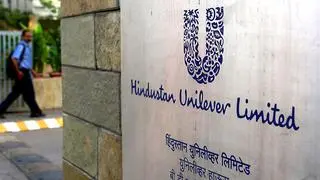Founder and Chairman of Marico, Harsh Mariwala has been mentoring entrepreneurs for the past eight years, with his not-for-profit Ascent. This organisation mentors budding entrepreneurs using a peer-to-peer platform. Ahead of their flagship eConclave, which will be held on November 26, Mariwala spoke exclusively with BusinessLine , about diverse topics relating to start-ups. Excerpts:
With the recent spate of IPOs, entrepreneurs are seeing major windfall for the ventures that they are creating. What does this mean for entrepreneurs that have just started out?
This is a huge motivation for entrepreneurs, seeing their peers coming from humble backgrounds to create unicorns with high valuations. These individuals started without a financial background but a very good idea, and we are seeing not just one example but many. This is going to increase the buzz around entrepreneurship dramatically and you will see more youngsters and students get into this.
For these new businesses, the conversation is always around valuation. Is this a concern or just a new way of doing business?
I am from the old school of management, where after a few years you should have visibility of profits. This big difference between my traditional thinking and new age thinking is scale, which means that the rate of growth has to be much much higher in the latter. Upwards of 30-40-50 per cent, and in driving that growth the losses can be much much higher. And although the timeframe before visibility of profits has become larger, I will be very reluctant to invest in businesses where I don’t see the visibility of profits or a good cash flow. Unless someone is able to convince me otherwise.
So in this context, how are you able to mentor these new-age start-ups?
My role in mentoring is limited, because we have 30-40 CEOs who can mentor depending on the challenge that each Ascent member is facing, and our job is to connect them with the right type of mentor.
Marico is also placing personal bets on a lot of new brands, such as premium personal care food brands. However a lot of these areas are also competitive with many D2C new-age start-ups entering the space, how does Marico plan on competing with that?
So the mindset required to run a D2C brand is very different from your traditional businesses, which means that as a legacy FMCG company, one should keep the entity focusing on its D2C holdings as a stand-alone entity.
Since the mindset required is very different. So, Marico has created a separate structure and we have acquired two D2C companies, Beardo and Justherbs along with creating our own D2C brands.
After 8 years of starting Ascent, are you satisfied with what your organisation has achieved?
The reason behind why I started this foundation was that I believed that entrepreneurs bring value to every stakeholder. I thought that if I am able to help these entrepreneurs scale up based on my personal struggles, I will be able to add some value. I spend about 15-20 per cent of my time on Ascent.
Over time this organisation has grown, from being established in Mumbai in Chennai, to now being launched nationwide, since Covid, as virtual interactions gained popularity. The model of Ascent is also on the right track and within the model itself, we are doing a lot of innovations. We have added a lot of things, from conclaves to mentoring programmes, to sessions and now we are starting coaching, we are doing a lot of things.
On the execution level, we are on the right track, our net promoter score, which we use to measure the satisfaction of our entrepreneurs is very high.
How has the entrepreneurship environment evolved during the pandemic?
A main cause of concern was the entrepreneur’s mental health, which was affected by such circumstances- such as uncertainty, hospital needs, medical need.
This high-pressure environment added more stress to already stressed sectors and their owners. Which required diverse advice, regarding how to reduce costs, manage and increase cash flow etc- for which we organised a series of webinars on what was being faced by the entrepreneurs.
This really helped the entrepreneur. Pandemic has also changed the leadership style, where one needs to be far more empathetic, far more caring to your coworkers etc.







Comments
Comments have to be in English, and in full sentences. They cannot be abusive or personal. Please abide by our community guidelines for posting your comments.
We have migrated to a new commenting platform. If you are already a registered user of TheHindu Businessline and logged in, you may continue to engage with our articles. If you do not have an account please register and login to post comments. Users can access their older comments by logging into their accounts on Vuukle.